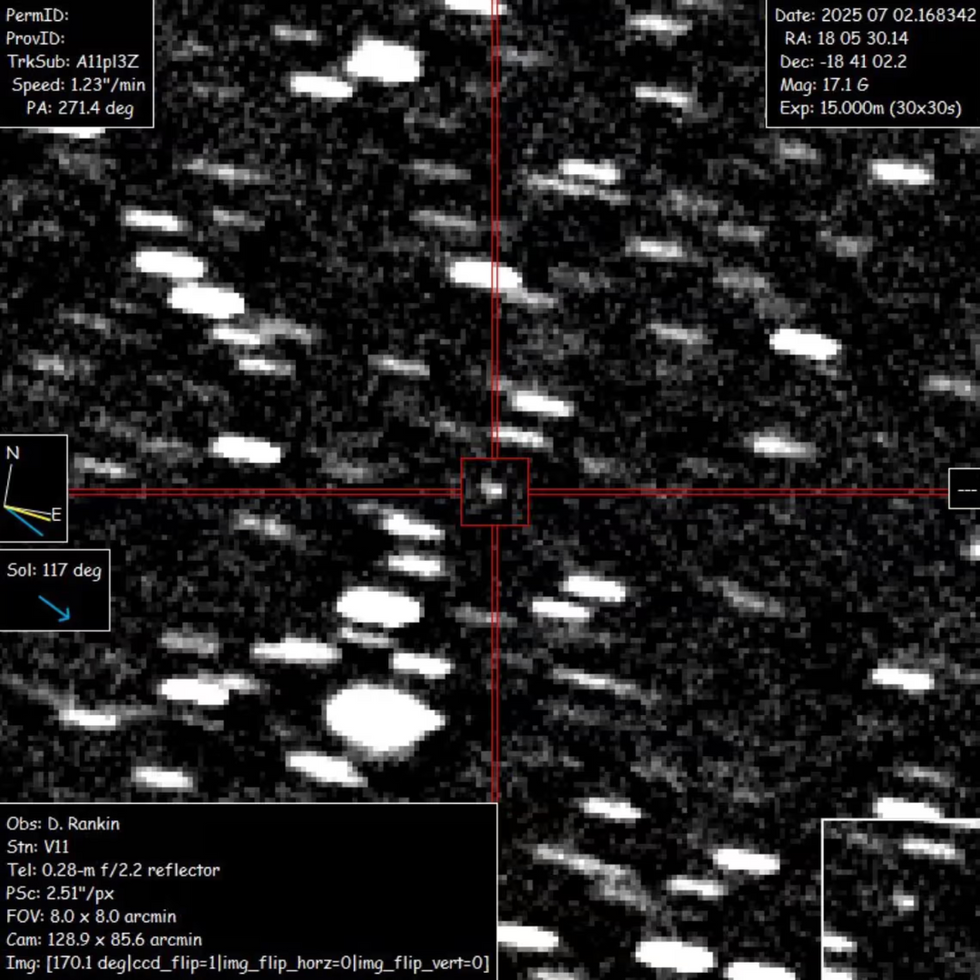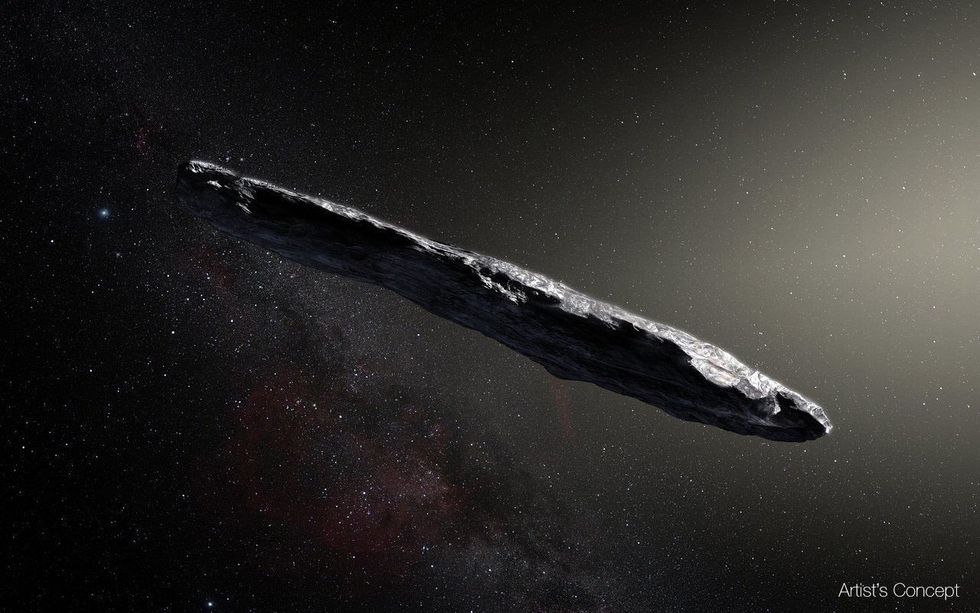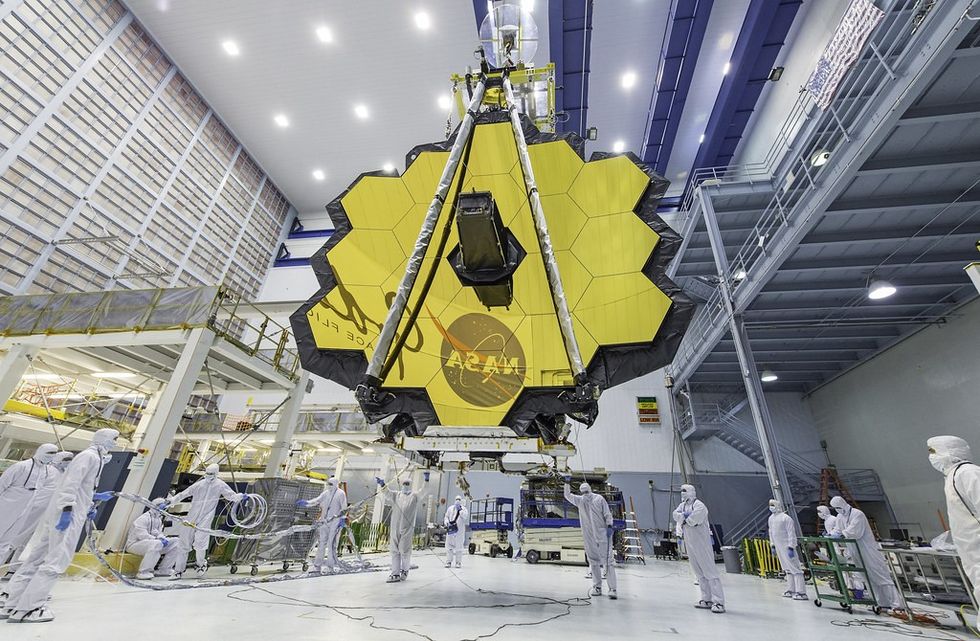Space mystery as 'interstellar object' heading towards our solar system leaves scientists baffled

WATCH: Harvard astrophysicist Avi Loeb reveals huge HINTS from credible source 'something is out there'
|GB NEWS

The object is travelling at extraordinary speeds - with scientists scrambling to identify it as an asteroid, comet, or something else entirely
Don't Miss
Most Read
A mysterious interstellar object is racing towards our solar system at approximately 150,000 miles per hour, with astronomers confirming it will make its closest approach to Earth in just months.
The object, designated A11pl3Z, measures an estimated 12 miles in width and will pass at a "safe distance" from our planet on December 17, according to Harvard astrophysicist Avi Loeb.
First detected by astronomer Sam Deen in late June, A11pl3Z has now been officially recognised by the International Astronomical Union after its origins from beyond our solar system were confirmed.
The object's extraordinary speed means it cannot be captured by the gravitational pull of our sun or any planet.

A11pl3Z, measures an estimated 12 miles in width and will pass at a 'safe distance' from our planet on December 17
|GETTY
A11pl3Z is travelling at more than 41 miles per second through space - significantly faster than typical celestial bodies in our solar system.
The object dwarfs previous interstellar visitors, with its 12-mile width making it substantially larger than the mysterious Oumuamua, which measured between 300 and 1,300 feet in length, and the comet Borisov, whose core spanned approximately half a mile in diameter.
Currently positioned 3.8 astronomical units from Earth as of 2 July, A11pl3Z is expected to pass within 37 million miles of Mars in October before approaching Earth in December.
Scientists have said the object is already within our solar system's boundaries.
LATEST SPACE UPDATES FROM GB NEWS:
- Space breakthrough as two new 'never-before-seen' stars explode in 'historical extremely rare event'
- Astronomers finally solve year-long space mystery after discovering mysterious signal
- New planet hidden in our solar system could be found in months as telescope shares incredible images
- Earth could be thrown out of orbit and into the sun by passing star, new research warns

Avi Loeb famously theorised that Oumuamua (pictured) might have been of alien origin
|NASA
It has also sparked speculation that it could be artificial, particularly given the precedent set by Oumuamua in 2017.
Loeb, who famously theorised that Oumuamua might have been of alien origin, noted that the 2017 visitor "was inferred to have a disc-like shape and to exhibit non-gravitational acceleration, raising the possibility of an artificial origin".
In 2021, the Harvard professor suggested Oumuamua could have "been meant to scan signals from all viewing directions," searching for sensors from a receiver potentially placed on Earth.
Most scientists, however, believe A11pl3Z is likely a large space rock or comet.
The object's extreme speed will provide astronomers with only a brief opportunity for study before it exits the solar system in 2026.

Astronomers could use the James Webb Space Telescope to determine whether A11pl3Z is an asteroid, comet, or something else entirely
|FLICKR
A11pl3Z is projected to pass the sun in late October, swing past Earth at its safe distance in December, and fly by Jupiter in March 2026.
Mark Norris at the University of Central Lancashire told New Scientist: "They really do whip through the solar system at ridiculous speeds.
"They're really fleeting and you are severely limited in what you can learn about them."
Scientists hope to utilise telescopes including the Rubin Observatory in Chile and potentially the James Webb Space Telescope to determine whether A11pl3Z is an asteroid, comet, or something else entirely.










